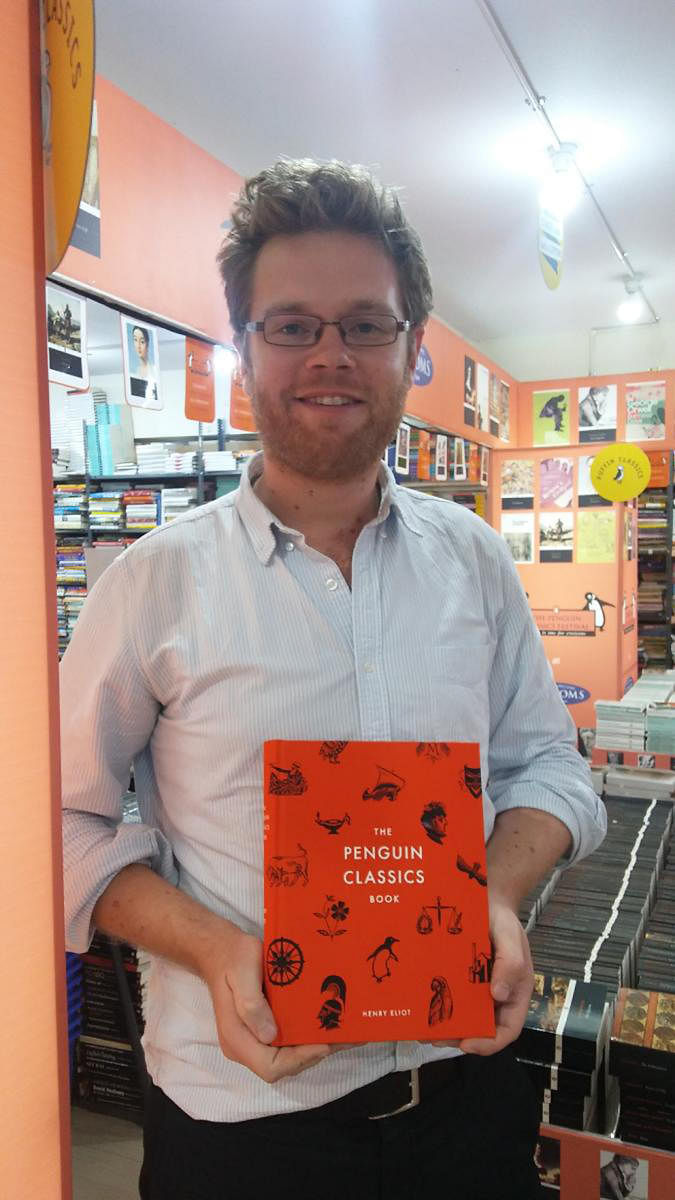
Henry Eliot, the author and creative editor at Penguin Classics was in the city to launch his new book ‘The Penguin Classics Book’ and ‘Penguin Classics Festival’. He spoke to Metrolife about his book, what classics mean to him and his plans on expansion of texts in India.
How do you define Indian classics?
It is a complex question, but for me how it is defined is quite universal. I feel it depends on three main aspects. The obvious one being the literary quality; should be written well although it is a subjective measure. Secondly, it needs to have historical significance; should have explored something new and be influential. The third aspect is that the piece of literature should have an enduring reputation. Any text that needs to be considered a classic should also be alive; readers must able to relate to it. Once that doesn’t happen it just becomes a historical document.
Are you planning to select any more Indian works for translation?
Absolutely. While it is fascinating to see what is in the Penguin classics list, it is more fascinating to observe what is not in it. The list began in the UK which centred English literature, but also included large amounts of French and Russian texts. Spanish, Italian, Indian, and East Asian literature sections are small and need to be bigger, so I absolutely want it to expand.
How did you come up with the idea to present Penguin classics book?
It struck me how long the list of classics is. I realised it is difficult for readers to find classics of their choice, and it might lead to them missing literature they would have otherwise enjoyed. At first, we thought we could create museums for the books so people could wander through the galleries and pick their area of interest, but then it boiled down to this book which is essentially the same thing. As it is a book, even though you know its really big, you know its not infinite which I feel will encourage people to explore the list and discover new authors.
What do you think of Murty Classic Library, the project that is aimed at bringing the great literary works of India of the past two millennia to the English reading public?
I don’t know well enough. However, the look of it is beautiful. I feel that it feeds this sort of collaboration between readers, writers and publishers. I think it is a great initiative.
Since your best sellers are some of the translations of Vachana and Sangam literature like the ‘Speaking of Siva’ by AK Ramanujan, do you plan on expanding along those lines?
I am afraid I cannot say there are any definite plans to expand on this particular section, but I will take this as a suggestion to the office.
India has historically and predominantly passed on legends and stories orally. Is Penguin looking into turning these oral renditions to tangible texts?
Most cultural texts are transcriptions of previous oral accounts. According to me, the issue is what account do you reproduce in the book? You got to base it on something but which rendition to focus on becomes a question. There is a Penguin classic published in the 1970s which was based on the rendition of two different storytellers of Sunjata, the legendary hero of Mali, so it is possible but a bit tricky. We are open to the idea, but there is nothing specific lined up as of now.